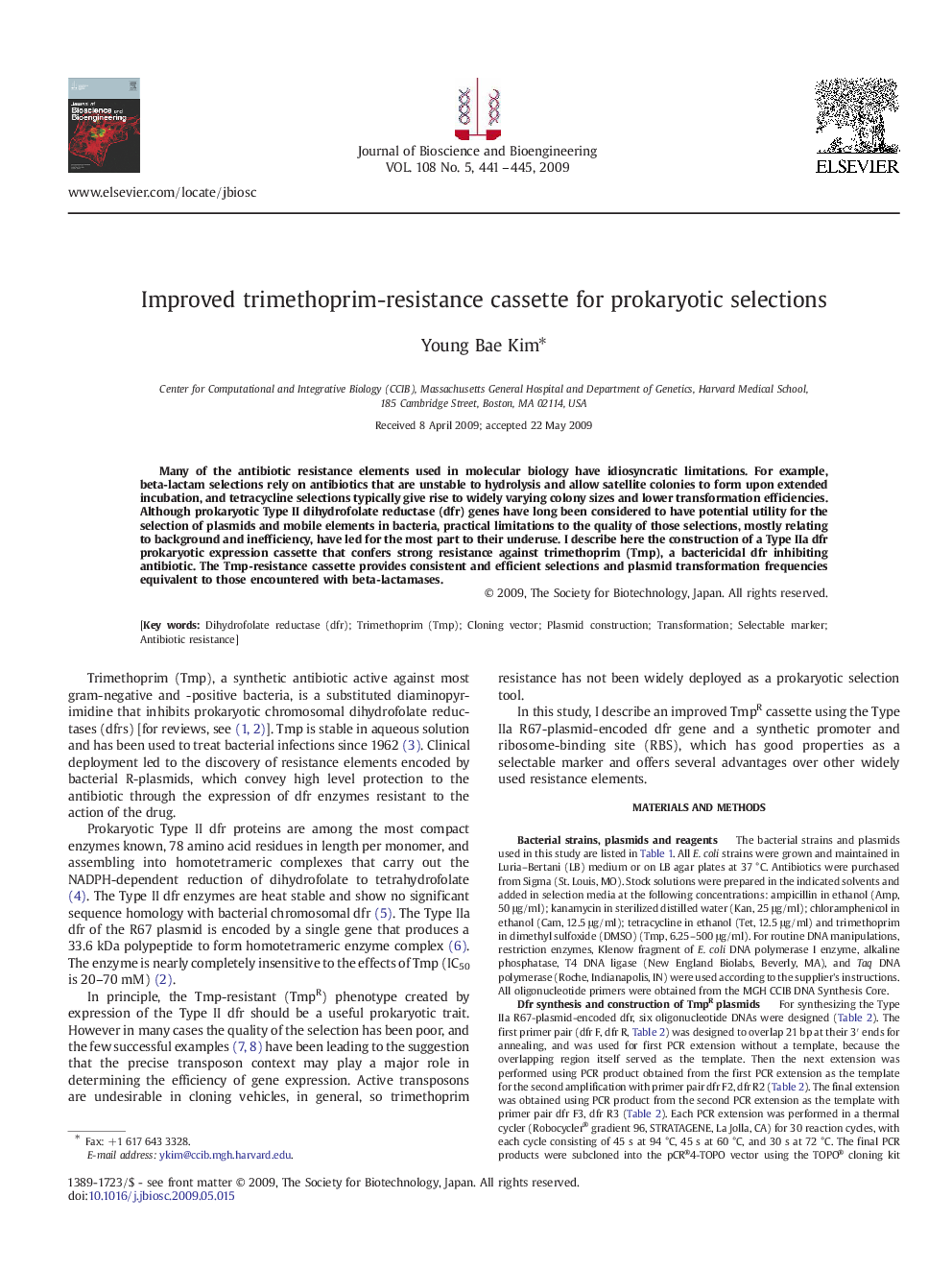| Article ID | Journal | Published Year | Pages | File Type |
|---|---|---|---|---|
| 21682 | Journal of Bioscience and Bioengineering | 2009 | 5 Pages |
Many of the antibiotic resistance elements used in molecular biology have idiosyncratic limitations. For example, beta-lactam selections rely on antibiotics that are unstable to hydrolysis and allow satellite colonies to form upon extended incubation, and tetracycline selections typically give rise to widely varying colony sizes and lower transformation efficiencies. Although prokaryotic Type II dihydrofolate reductase (dfr) genes have long been considered to have potential utility for the selection of plasmids and mobile elements in bacteria, practical limitations to the quality of those selections, mostly relating to background and inefficiency, have led for the most part to their underuse. I describe here the construction of a Type IIa dfr prokaryotic expression cassette that confers strong resistance against trimethoprim (Tmp), a bactericidal dfr inhibiting antibiotic. The Tmp-resistance cassette provides consistent and efficient selections and plasmid transformation frequencies equivalent to those encountered with beta-lactamases.
